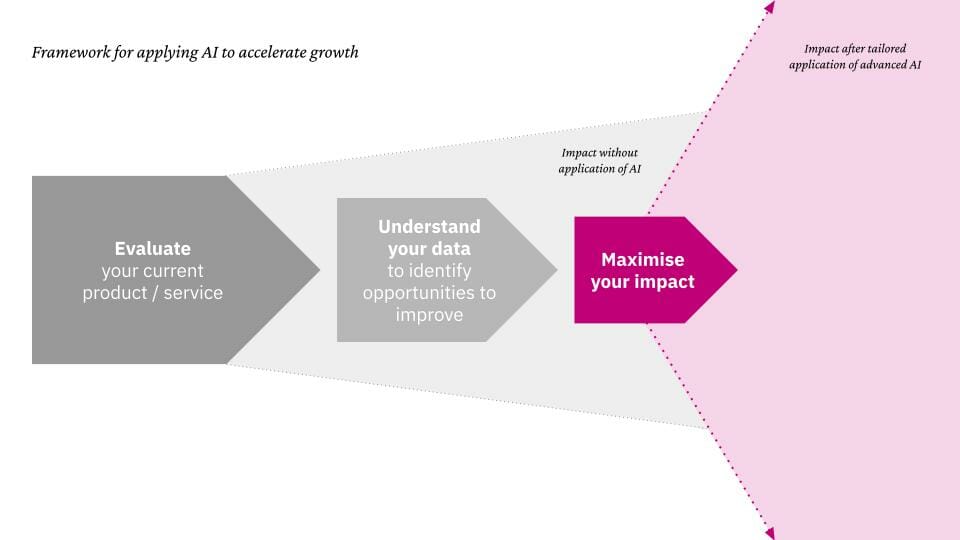Blog
Data-driven solutions that differentiate

Digital technologies are revolutionising the provision of health and care services over the last decade. Accelerated by the COVID-19 crisis, this trend is here to stay with ambition for 40–50 ‘virtual ward beds’ per 100,000 of the population by December 2023.
As the NHS and other healthcare systems rapidly evolve patient pathways and services (such as remote monitoring of cancer patients in Manchester using wearables), it is critical they look at the technology available to underpin these new models of care. With some of these technologies still in their infancy (and developing rapidly), this presents an interesting challenge: does the clinical pathway set the requirements for the technology needed, or does the potential of the technology lead the pathway change?
For organisations operating in the health and care technology space, having a grip over your solution and its potential is both essential and time critical.
Ensuring your technology is continually best-in-class
In 2019, there were over 2,500 health and care start ups. In 2021, investment in health technology companies doubled to $40bn. And more recently, commitment to ongoing digital innovation was clearly stated in the recent NHS Digital Health Innovators Report. Clearly, the health tech industry is growing rapidly and now is the time for small, innovative health tech companies to ensure that they’re part of the next phase of the transformation, for example Sleepio endorsement to provide an alternative NHS insomnia pathway.
The key question is how to do this effectively. But for many health and care technology companies part way through their scaling cycle, the answer is already there – your data.
How can my data help my health and care startup to grow?
Using your data in ways that enhance your business is mission critical. To get the most out of this data, AI should play a central role. From using advanced data-driven techniques to enhance operational decision making and scenario planning, to building new, machine-learning-enabled features that fundamentally transform your offering and bring real change for patients.
A simple framework for success

Whatever your ambition, if you want to unlock the power of data-driven techniques and AI to accelerate your growth, there are three important steps to follow:
• Evaluate your current product / service: First, you need to fully understand your business, its performance, and the impact it’s having on health and care. This includes evidencing the value of your product or service through impact evaluation, evidenced-based metrics, and comparisons against both baseline and your competitors. Evaluation is critical to proving your impact to users, customers, investors, and enabling you to act with certainty when scaling. AI methods are very powerful here: from demonstrating statistically significant impact to providing confidence in the safety of AI products.
• Understand your data to identify opportunities to improve: Next, you need to look at applying advanced data science and AI techniques to unlock a better level of understanding within your data. What relationships, insights or inferences are hidden and what causal links can be discovered? This can even include identifying important gaps in the existing data capturing strategy – identifying future data points that, if collected, would have material impact. Understanding and demonstrating the value of your data asset via rapid proof-of-concept analysis provides you new business options – from product and service developments, to operational efficiencies, and third party commercial ventures.
• Maximising your impact: Finally, look at how data-driven product features and enhancements can provide a different level of intelligence into your product. Providing added value to service users, both in terms of insights derived and in driving user adoption, while maintaining data security and privacy. Building, and productionising, relevant product capabilities, is a powerful differentiator to have real impact on health and care outcomes.
Faculty, as UK leaders in AI and authors of the NHS AI Buyers Guide, are passionate about making AI real, having completed over 400 AI projects with 250 companies and built some of the UK’s most powerful AI technologies across the public sector. If you’re interested in learning more, including how we could help you as a growing company, please get in touch via health@faculty.ai.




